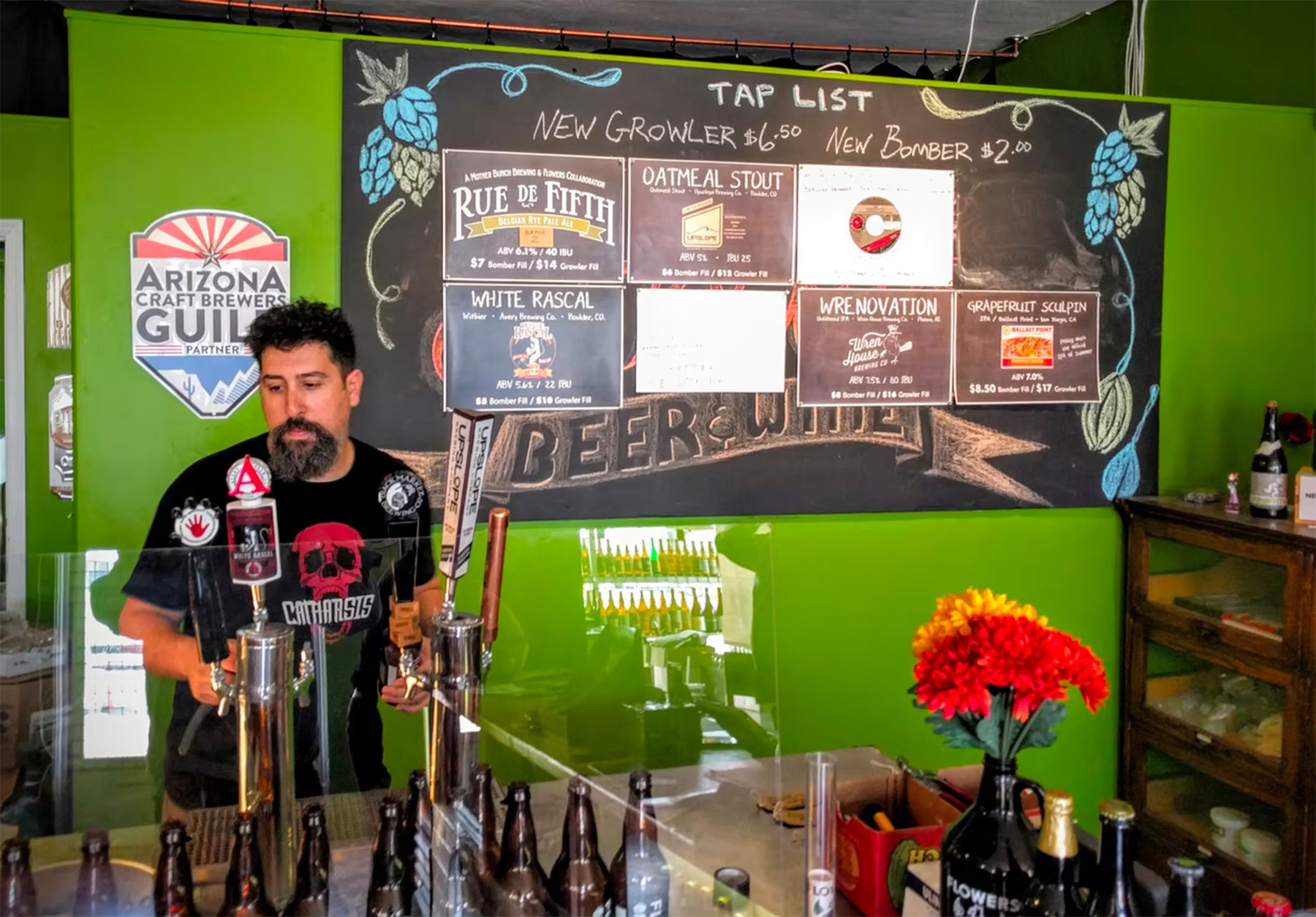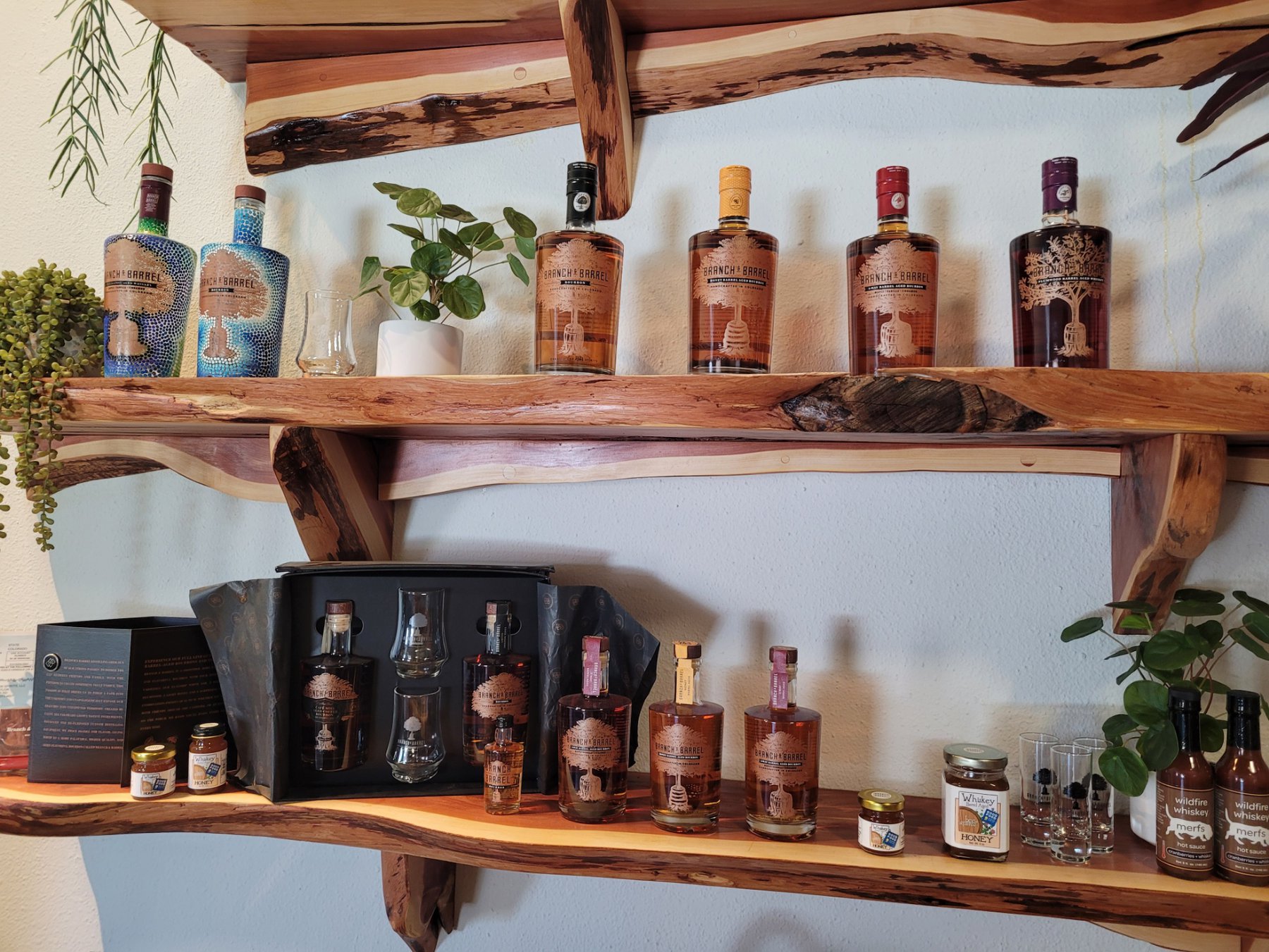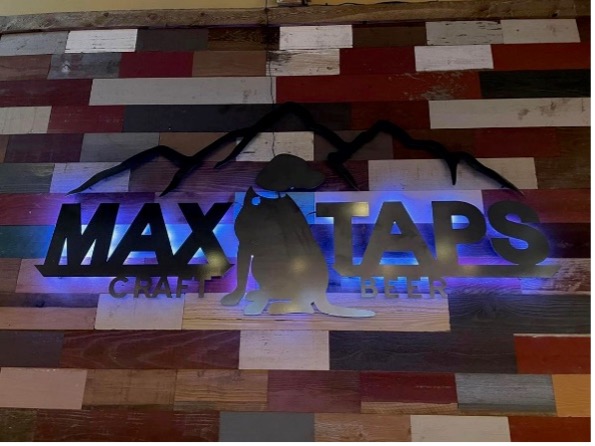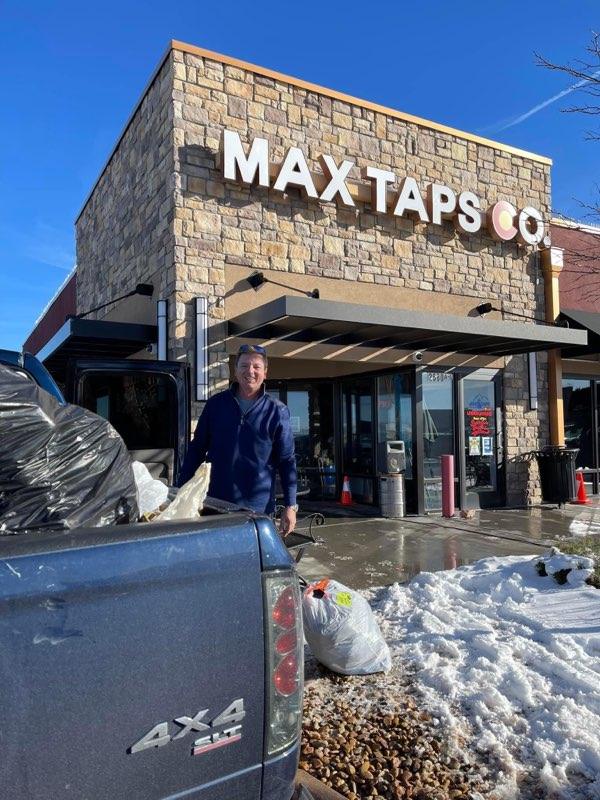Thanks to my Atlantic colleague Kathy Gilsinan for the reminder of why today is different from all other days: It’s National Beer Day! Congratulations to beer.
Last week I did an item about the reasons to believe that craft breweries can actually play a significant part in the economic revival of communities. Short version: because startup breweries need a lot of space but typically don’t have a lot of money, they usually set up show in low-rent, fringe, non-fashionable parts of town. The jobs and activity they create in those neighborhoods have their own effect — which is then magnified by the customers they draw to the area, particularly at night and weekends when warehouse districts would ordinarily be deserted. As Jeff Alworth wrote in an All About Beer item I mentioned:
They are people magnets, bringing folks in who are curious to try a pint of locally made IPA. In fairly short order, breweries can create little pockets of prosperity in cities that can (and often do) radiate out into the neighborhood.
Pretty soon, other businesses see the bustle and consider moving in, too. It doesn’t hurt that breweries often find run-down parts of towns that have great buildings. Once a brewery moves in and refurbishes an old building, it reveals the innate promise of adjacent buildings to prospective renters.
My wife Deb and I have seen dozens of startup craft breweries around the country in recent years, and I could have used a photo of some random one in Vermont or South Carolina or Pennsylvania or Mississippi or Southern California to make the case. Or for variety I might have used a photo like the one at the top of this post, from Flowers Craft Beer and Wine in the developing/local-arts-centric Roosevelt Row district of Phoenix, which we visited earlier this week. Flowers sells craft beers (including in growlers and bombers) rather than brewing them on-site but has brewpub-like spillover economic effects.
But the photo I happened to use was of the four young founders of Bent Paddle Brewing in Duluth, Minnesota: Bryon and Karen Tonnis, and Colin and Laura Mullen, whom you see again below:
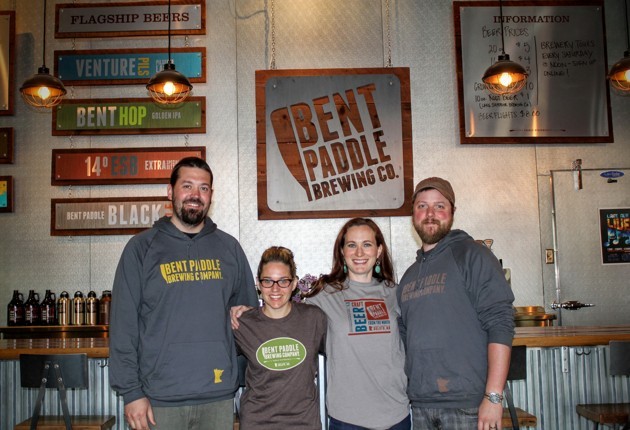
After using their photo, I heard from a number of people in Minnesota, all asking whether I was aware of the political controversy that Bent Paddle was in the middle of.
I wasn’t aware of it then, but I am now. And I think this dispute shows something interesting and potentially significant about the role of the young startup “makers” we’ve been reporting on around the country.
Bent Paddle and its founders have become members of a Duluth-area organization called the Downstream Business Coalition. In my March issue story, I quoted the Duluth entrepreneur Dave Benson as saying that the area had become a hotspot of startups and innovation. The kinds of companies he was talking about — including Loll furniture and Epicurean kitchenware, which he and his brother Greg founded — are very strongly represented in the Downstream membership. (You can see the full list here.) The organization has a strong environmental emphasis, directed especially to protecting Lake Superior and its watershed. These are as important to Duluth’s identity, and its emerging northern-paradise eco-tourism prospects, as the ocean is to Malibu or the mountains to Colorado. As the coalition’s manifesto says:
We are a growing group of nearly 80 small businesses in the North, representing a cross-section of industries including technology, manufacturing, service, entertainment, and the trades. We employ nearly 1000 people and we are continuing to succeed and invest, adding jobs and dollars to our economy. Our businesses depend on the health of the Lake Superior watershed.
For those of us in the over 17,000 job, $800 million annual tourist and outdoor industries of Northeast Minnesota, the water draws our customers. The St. Louis River, Boundary Waters and Lake Superior have become great attractions for our region, and others and we have built a foundation for an entire tourist economy. For all our regions businesses, healthy water and vibrant outdoor access have enabled us to recruit and retain skilled employees. The economy of the North overall depends in on the unparalleled quality of life the clean water provides. For several of our businesses, water is our raw material and our brand. Those of us in the beverage manufacturing industry have located our businesses in the watershed specifically for access to the pristine water of Lake Superior.
How could this outlook be controversial? Because it led the members of the coalition, to oppose a proposed new copper mine on the north shore of Lake Superior, near the town of Silver Bay. You can read the details of the dispute in the Duluth News Tribune here and here, and the Downstream coalition’s warnings against the mine here. In essence they argue that even on purely economic grounds, a new mine would be a mistake, since in exchange for a relative handful of mining jobs the region would jeopardize its highest-value, fastest-growing industries.
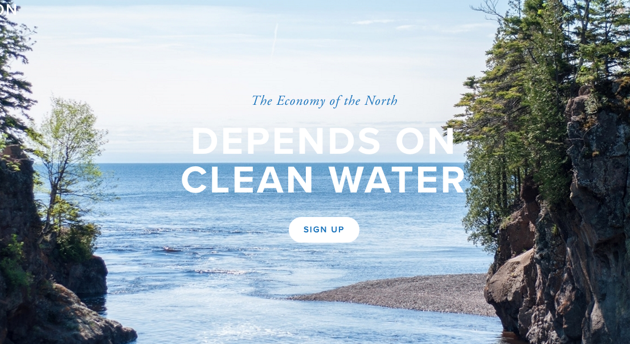 Home page of the Downstream Business Coalition, with their main message.
Home page of the Downstream Business Coalition, with their main message.Based on what I’ve seen across the country and around the world, I find this a compelling argument. But for understandable reasons, some residents of Silver Bay, which have lost old mining jobs and how for new ones with the proposed copper mine, see it differently. Thus one month ago the Silver Bay city council passed a resolution order the city-run Silver Bay Municipal Liquor Store and Lounge to take Bent Paddle products off its shelves. If city residents decided to express their disapproval by not buying Bent Paddle brews, that would be in the grand old tradition of people voting with their pocketbooks. The City Council move was in the cruder tradition of denying customers that choice.
Last week I called Laura Mullen, of Bent Paddle, to ask her how this appeared from the company’s point of view. She said that part of the tension was long-standing. The traditional mining communities of Minnesota’s Iron Range have felt themselves on the wrong side of history’s slope. (This is me talking, not Mullen.) Their populations have been shrinking, jobs and young people are going away, those who remain are older, and among their antagonists (as they see it) are the younger, environmentally active populations in the cities.
“As soon as we became part of the Downstream alliance, we knew we’d have trouble in the Range,” Laura Mullen told me. But she said that the company was expecting some customer resistance, not the council’s outright and heavy-handed ban. “The difference with Silver Bay is that it told the municipal liquor store what to do.”
“We’re not looking for a war with Silver Bay,” she said. “We actually feel kind of bad for all the negative publicity they’re getting.”
Based on what I’ve heard from friends in Duluth, the anti-Bent Paddle move is in fact backfiring. A move meant to punish the company in one small market for an environmental stand is winning it broader support elsewhere. (You can think of the obvious parallels with the national reaction against anti-LGBT measures in Georgia, North Carolina, Mississippi, and elsewhere.)
“This dispute has been happening through the fall and winter,” Laura Mullen said. “But the summer tourism season is about to kick in again. People have heard about our beer, and will be asking for it. Summer tourism will change the game, because people who aren’t selling the beer will lose a lot.”
There’s a fascinating report here, in Growler magazine, of Laura Mullen’s statement to the Silver Bay city council, after it imposed the ban. Speaking for all four Bent Paddle founders, she emphasized that the company was pro-mining, pro-union, pro-livable wage, pro-Northland. She added:
When this controversy first began, our first action was to get into our car and drive to every store and bar struggling under pressure to drop our product on the Range. We drove. We listened. We explained. While these accounts don’t represent huge sales volumes, it’s the relationships that truly matter to us. We want to take this time to thank those business owners who did not succumb to the pressure of a few and who believe in the free market by keeping our Northland-made beer on their shelves and menus. We also want to do everything in our power to help the Range and this region with the job insecurity that has been so prevalent in the traditional mining communities of our state. Please know that Bent Paddle will be right beside you as we demand action from our Northeast Minnesota policymakers and seek real, long-lasting, sustainable economic diversification for our region so we can all continue to live, work, and play here without fear of what tomorrow will lend….
Hard as this is, we’re proud of our stance. In our backyard sits 10% of the world’s fresh water—fresh, clean water is becoming a more valuable asset globally each day, and to think we are all the stewards of 10% of it is a large undertaking that we believe our Northeast Minnesota community should be protecting wholeheartedly—in our case even if it means upsetting friends and losing sales.
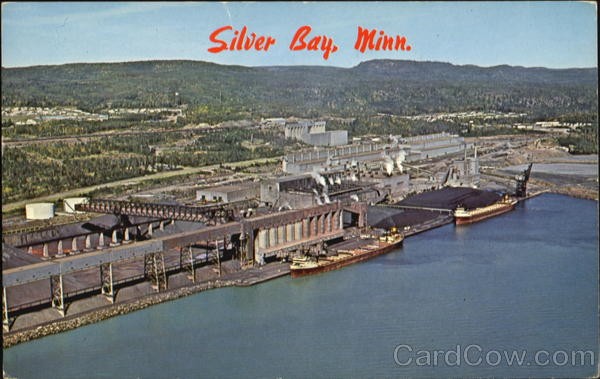 Old mining operations in Silver Bay, Minnesota, the “Taconite Capital of the World” (CardCow.com)
Old mining operations in Silver Bay, Minnesota, the “Taconite Capital of the World” (CardCow.com)That’s as far as I want to get into the specifics of this dispute now. My point in bringing it up, on National Beer Day, is to underscore the way this part of America’s entrepreneurial- and place-making revival is playing a part in shaping and improving our national future. One further thought from the Bent Paddle statement to the Silver Bay council, which is relevant for its economic, environmental, and civic overtones:
None of this has been easy. Beer is often celebratory, bringing people together. We take a lot of pride in being a part of this region so it has been incredibly difficult to think of this issue dividing us….
Our brewery is located in a neighborhood that has historically been unattractive to business development. We have joined and been active in several organizations to revitalize the neighborhood we operate in and are trying to find ways and reasons for other businesses to open and provide jobs for neighborhood residents. At the end of the day we feel it is better to be proactive and stand up for what you believe to be right.
Congratulations to beer! Congratulations to America’s start-up brewers.

